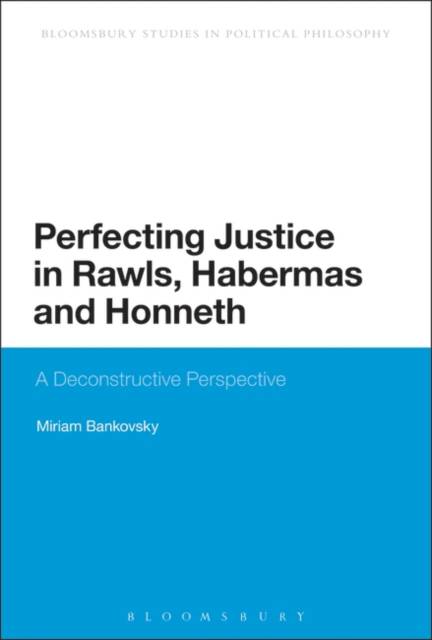
- Afhalen na 1 uur in een winkel met voorraad
- Gratis thuislevering in België vanaf € 30
- Ruim aanbod met 7 miljoen producten
- Afhalen na 1 uur in een winkel met voorraad
- Gratis thuislevering in België vanaf € 30
- Ruim aanbod met 7 miljoen producten
Omschrijving
In this exciting new work, Miriam Bankovsky shows how the pursuit of justice requires two orientations. The first is a practical commitment to the possibility of justice, which is the clear starting point for the broadly constructive theories of Rawls, Habermas and Honneth. Indeed, if justice were not possible, it would be difficult to see why it is worthwhile for human beings to live on this earth. However, a second orientation qualifies the first. It can be expressed as a deconstructive attentiveness to the impossibility of determining justice's content. This impossibility results from the tension between the appeal for individual consideration and the appeal for impartiality, demands that Derrida believes our historical concept of justice includes.
Framed by these two orientations, this ambitious book explores the promise and shortcomings of the constructive theories. Attentive to concrete experiences of injustice that these thinkers tend to overlook, Bankovsky provocatively challenges Rawls' account of civil disobedience, Habermas' defence of rational consensus, and Honneth's ideal of mutual recognition, providing new insights into deconstruction's relevance for contemporary theories of justice.Specificaties
Betrokkenen
- Auteur(s):
- Uitgeverij:
Inhoud
- Aantal bladzijden:
- 256
- Taal:
- Engels
- Reeks:
Eigenschappen
- Productcode (EAN):
- 9781472522146
- Verschijningsdatum:
- 16/01/2014
- Uitvoering:
- Paperback
- Formaat:
- Trade paperback (VS)
- Afmetingen:
- 156 mm x 234 mm
- Gewicht:
- 367 g

Alleen bij Standaard Boekhandel
Beoordelingen
We publiceren alleen reviews die voldoen aan de voorwaarden voor reviews. Bekijk onze voorwaarden voor reviews.







